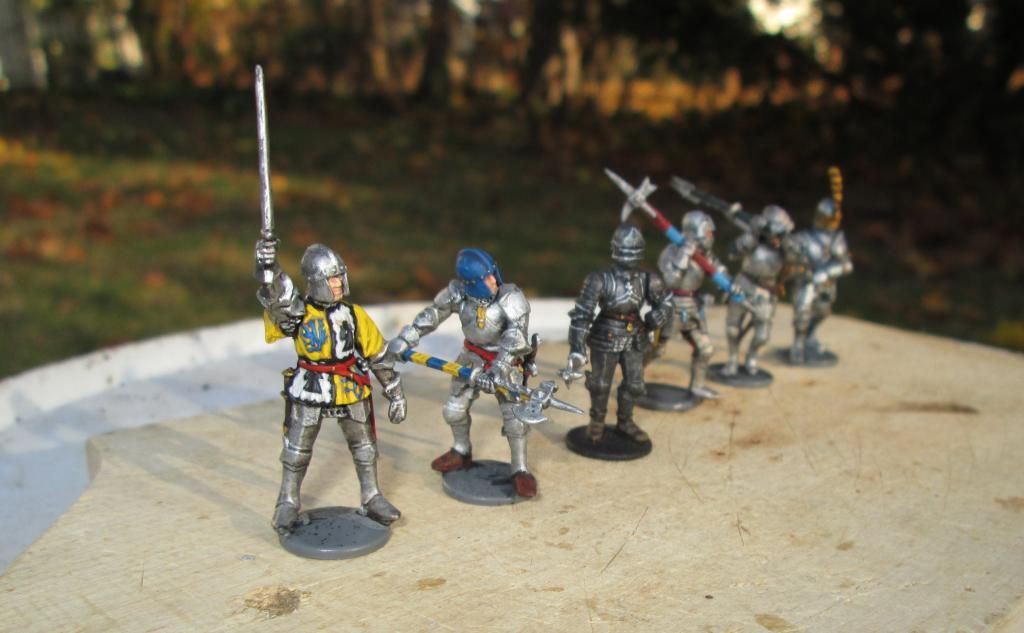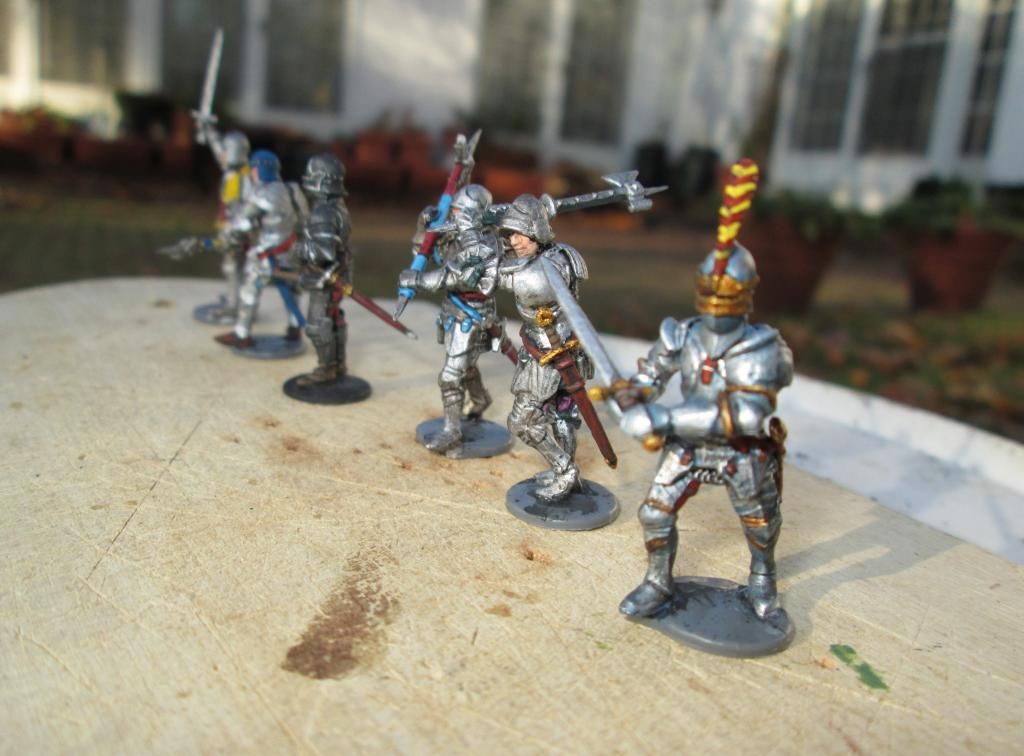Like so many rebellions planned from abroad, Lincoln's campaign depended on widespread popular support, and the exiles at Margaret's court in Mechelen doubtless imagined droves of disaffected noblemen would flock to the Yorkist banner. As is so often the case, however, things turned out rather differently in the event. Most of Yorkist England was dead, won over by Henry VII's magnanimity, or simply too tired of war to take to the field. The Yorkist aristocracy had been severely culled at Bosworth, and those lucky enough to survive (including Lincoln) had gladly accepted Henry's offer of a general pardon to his defeated enemies, only one of whom lost his head after the battle.
Lincoln and his army landed in Lancashire and immediately began to march across the North, the stronghold of Ricardian sympathy. But the Yorkist turnout was poor, perhaps about fifteen hundred men. Of them, only three were of any great standing: Sir Thomas Broughton and two Scropes (perennial enemies of John of Gaunt's line), the lords Masham and Bolton. The rest were gentlemen, knights, and minor nobles, primarily from the North, who out of old friendship and loyalty turned out to fight for the boy-king. It's likely that Lincoln hoped to bolster his army with men from the formerly Edwardian Midlands, where his own lands lay, for it was on his march South toward the Midlands that he was intercepted by the Tudor army.
Henry was still in his 'magnanimous phase' in '87, so most of the English survivors of Stoke got off with attainders or heavy (sometimes crippling) fines. The records of the legal proceedings against these men offer us a fairly precise list of the Englishmen who turned out for White Rose.
Left to Right: Sir Robert Percy of Scotton, Comptroller of the Household under Richard III; John, Lord Scrope of Bolton (fined and kept under house arrest); and David Thomas, commander of the Calais garrison (killed in battle).
Right to Left: Francis, Viscount Lovell (thought to have starved to death while hiding in his house); Sir Richard Harliston, Governor of Jersey (attainted, fled to Burgundy); and Clement Skelton (attainted).
The figures are mainly straight out of the Foot Knights box, though I built David Thomas from the Mercenaries box to give him that "professional soldier" feel. Wherever possible, arms and colors are authentic. The very Burgundian salet/plume combination may seem out of place for an Englishman, but Lovell fled to Mechelen in 1486, and I imagine the ever-generous Margaret bought him a new armor for his troubles. In any case, I've always imagined him as a bit of a dandy and wanted him to look a bit more dashing than the rest.


No comments:
Post a Comment